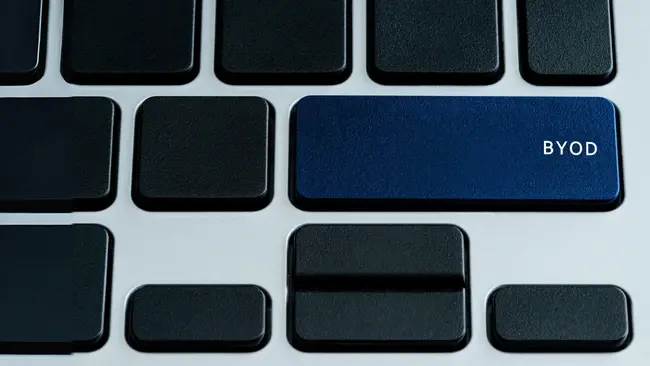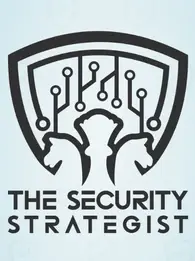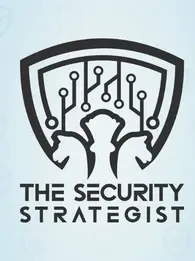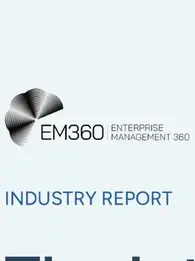
Most companies now have at least one or two employees who bring their own equipment into the workspace.
And that’s great. Allowing personal devices like smartphones, tablets and laptops in the office gives employees the flexibility to work freely on their own devices while cutting costs and improving productivity across the board.
It’s no wonder a massive 82% of organisations have a Bring Your Own Device (BYOD) policy in place – whether that be allowing employees to work from unmanaged devices or allowing contractors, partners, customers, and suppliers to access company applications and data remotely.
But like any business practice, not everyone gets BYOD right. That’s why BYOD software solutions are becoming increasingly popular with organizations looking to implement BYOD correctly without compromising productivity or security.
What is Bring Your Own Device (BYOD)?
BYOD, otherwise known as Bring Your Own Device, is a set of workplace policies that allow employees to use their personal smartphones, tablets, laptops or other devices to access company data and applications.
This means employees can access work emails, documents, and applications on their own devices rather than being forced to use company-provided devices for work-related activities.

There are both advantages and disadvantages to BYOD programs. For employees, BYOD can offer more flexibility and convenience, as they can use the devices they're already familiar with. For companies, BYOD can reduce costs associated with purchasing and managing company devices.
However, BYOD also raises security concerns, as companies need to ensure that sensitive data is protected on personal devices.
BYOD programs often come with security measures in place to mitigate these risks. These can include requiring strong passwords, remote data wiping capabilities, and mobile device management software.
What are BYOD Software solutions?
BYOD software solutions are tools that help organizations manage and secure company data on employee-owned devices (phones, laptops, tablets) allowed under a BYOD program.
They do this by working behind the scenes on both the company server and the employee's device to provide a secure work environment while minimizing disruption to personal use.
Features of BYOD Software
BYOD software offers a range of features to ensure a secure and productive Bring Your Own Device program. Some of its key features include:
1. Mobile Device Management (MDM)
MDM is the core of BYOD software, allowing IT admins to remotely configure, monitor, and control devices. This can include enforcing password policies, installing security apps, and remotely wiping company data if a device is lost or stolen.
2. Containerization
This creates a secure work zone on a personal device, keeping company data separate from personal information and apps. Even if malware infects the device, it can't access the work container and the sensitive data stored within it. IT teams can also control and manage apps and data within the work container without affecting personal apps or data
3. Secure access to corporate resources
BYOD software provides a secure way to access company resources like email, documents, and internal applications. This is often achieved through:
- Single Sign-On (SSO): You log in once with your work credentials, and the BYOD software grants access to all authorized work apps and data.
- Virtual Apps: Some solutions might use virtual apps, where the applications actually run on a company server and are streamed to your device. This eliminates the need to store work apps directly on the device.
4. Data Loss Prevention (DLP)
Many BYOD software solutions also use data loss prevention to stop employees from accidentally or intentionally sharing sensitive company data through their personal devices.
This feature helps prevent accidental or malicious data leaks by:
- Monitoring Activity. Monitors what data is being copied, pasted, or transferred from the work container.
- Enforcing Restrictions. DLP might block certain actions like copying sensitive data or emailing it to unauthorized recipients.
Best BYOD Software solutions
There are a variety of BYOD solutions on the market today, each with its own set of features and tools for helping employees work from their own devices securely and effectively.
Here are ten of the best BYOD software solutions available today based on their features, popularity with users, and user reviews.
Jamf Now
Jamf Now is a cloud-based mobile device management (MDM) solution designed specifically for Apple devices within small and medium-sized businesses. The platform allows organizations to easily set up, manage, and secure iPhones, iPads, and Macs used by employees – even if they're personally owned devices under a BYOD policy. Jamf Now boasts a user-friendly interface that makes it easy to configure settings, deploy apps, and manage devices without extensive IT expertise. You can set security policies, Wi-Fi settings, and app restrictions across all your devices, without physically touching them - making it great for implementing BYOD without compromising security.
With Jamf Now, you can distribute apps from the App Store, keep track of devices, and even remotely wipe a lost or stolen device to protect your data. It also makes it easy to enforce strong passwords, manage encryption settings, and ensure your devices are up-to-date with the latest security patches. If you have a small or medium-sized business that relies on Apple devices, and you're looking for a user-friendly and secure way to manage them, Jamf Now is a great BYOD solution to streamline managing your devices.
Miradore Mobile Device Management
Miradore is a cloud-based MDM platform that empowers you to centrally manage a diverse device fleet, including Android, iOS, Windows, and macOS devices. This translates to seamless BYOD implementation, allowing employees to use their own devices for work while maintaining robust security protocols. Miradore prides itemself on unified device management, providing a single platform to manage all your devices, streamline IT operations and reduce complexity when implementing BYOD. You can enforce strong passcodes, data encryption, and application restrictions to safeguard your organization's data. Meanwhile, lost or stolen devices can be remotely wiped for added protection, preventing security threats from gaining access to your network through the lost device.
Miradore also makes it easy to gain real-time insights into your device inventory and enforce data protection regulations like GDPR and HIPAA. The platform prioritises data security management with features like encryption, remote wipe, and app permission control. If you're looking for a user-friendly and secure solution for BYOD security, Miradore is a great option to consider.
N-able
N-able actually takes a slightly different approach to other BYOD software solutions on this list.. It's not a dedicated Mobile Device Management solution, but rather a Remote Monitoring and Management (RMM) platform that offers BYOD management capabilities as part of its wider feature set. N-able RMM is designed for IT professionals and managed service providers to remotely monitor, manage, and troubleshoot various devices across a network, including desktops, laptops, servers, and yes, even mobile devices used in a BYOD program. It can manage Windows, macOS, Linux systems, and mobile devices with iOS, Android, and Windows platforms, giving you a holistic view of your BYOD environment.
Like other BYOD solutions, N-able includes security features like remote wipe, application management, and mobile device security checks to keep your data secure on employee-owned devices. It also automates security patch deployment across all your devices, including desktops, laptops, and mobiles, plugging security holes and reducing vulnerabilities. If you need a comprehensive RMM solution with strong BYOD capabilities, N-able is definitely worth taking a look at.
Hexnode
Hexnode is a cloud-based Unified Endpoint Management (UEM) platform that caters to organizations of all sizes. It excels at managing BYOD programs, allowing businesses to securely integrate personal devices into their work environment and manage all devices, regardless of operating system from a single, intuitive dashboard. You can distribute work apps, enforce security policies, and segregate work data from personal information too, all within a single, unified platform designed to allow employees to securely access corporate resources on their personal devices
Hexnode offers both cloud-based and on-premise deployment options for mobile device management to suit your organization's specific needs. You can configure settings, deploy updates, and even remotely wipe compromised devices for enhanced security. f you're looking for a scalable and secure UEM solution for your BYOD program, with the ability to manage a diverse device landscape, Hexnode is a great option to consider. It provides a centralized platform for managing all your devices while keeping your data secure and offers deployment options that cater to your specific needs.
Jumpcloud
JumpCloud takes a unique approach to BYOD by providing a cloud-based directory platform that acts central hub for managing user identities, access controls, and devices within and outside of a BYOD program. Going traditional mobile device management, allows organizations to manage user identities and access controls across all their systems and devices from a single platform. You can grant users secure access to all their authorized applications with a single login, add an extra layer of security for user logins, and even manage and secure employee-owned devices within your BYOD program, giving you a holistic view of all of your company and employee devices.
JumpCloud acts as a single source of truth for user identities, simplifying user provisioning and access management across all devices, applications, and cloud resources. It provides features like remote wipe, application management, and security policy enforcement for mobile devices (iOS and Android). It also integrates seamlessly with existing Active Directory environments, simplifying migration and management
Cisco Meraki
Cisco Meraki is a powerful cloud-based networking and mobile device management solution designed to streamline BYOD management. It integrates seamlessly with Cisco Meraki wireless access points, providing a unified platform for network security and device control providing continuous insights into all devices connected to your network. Meraki Systems Manager, the MDM component of the platform, allows you to manage iOS, Android, Windows, and macOS devices. You can enforce security policies, distribute apps, and even remotely wipe lost or stolen devices, making it easy to ensure none of your employee’s devices become an entry point for threat actors.
Cisco Meraki simplifies BYOD security with automated policy enforcement and centralized management. The platform is incredibly easy to set up and manage, making it ideal for businesses with smaller security teams that prefer self-service, cloud-based solutions. This makes Meraki a strong choice for organizations already invested in Cisco Meraki networking solutions or those looking for a cloud-based BYOD management solution with integrated network security features. It's well-suited for businesses of all sizes that want to simplify BYOD management and ensure a secure network environment.
Microsoft Intune
Microsoft Intune is a cloud-based endpoint management service that goes beyond just managing mobile devices. It's part of Microsoft's Enterprise Mobility + Security (EMS) suite and focuses on providing secure access to organizational resources for users on various devices, including those enrolled in a BYOD program. Intune manages a broad range of devices, including mobiles (iOS, Android, Windows Phone), desktops (Windows, macOS), and even virtual desktops, providing a single pane of glass for managing your BYOD environment. The platform also protects corporate data on employee-owned devices without requiring full device enrollment, making it ideal for BYOD scenarios where employees may not want to fully enroll their personal devices.
Unlike other BYOD solutions, Microsoft Intune enforces multi-factor authentication and device health checks before granting access to organizational resources, adding an extra layer of security for BYOD access. It also seamlessly integrates with Microsoft 365 applications and Azure Active Directory simplifying user access and management for BYOD users. This makes it a great BYOD software solution for businesses with different devices needing a unified management platform - especially those already invested in the Azure ecosystem.
BlackBerry UEM
BlackBerry Unified Endpoint Management is a powerful BYOD software solution that carries the legacy of BlackBerry's strong mobile security heritage. The platform provides a unified platform to manage and secure a wide range of endpoints, including smartphones, tablets, laptops, desktops, and even Internet of Things (IoT) devices within your organization. You can manage all your devices from a single console, simplifying administration and providing a holistic view of your BYOD environment. The platform also offers encryption, strong password policies, and application management to safeguard corporate data on employee-owned devices.
Renowned for its robust security features, BlackBerry UEM is a trusted BYOD solution for organizations with high-security requirements. Suitable for businesses of all sizes, it can adapt to your growing needs and device fleet, providing a single platform for managing all your devices, and streamlining BYOD management alongside desktops, laptops, and IoT devices. Overall, BlackBerry UEM is a great choice for organizations prioritizing bulletproof security for their BYOD program and well-suited for businesses that need to manage a diverse range of devices beyond just mobiles.
Omnissa Unified Endpoint Management
Formerly known as VMware Workspace One, Omnissa Unified Endpoint Management is designed to manage and secure all devices within your organization, including those enrolled in a BYOD program. It stands out for its ability to manage a wide range of devices, including smartphones, tablets, laptops, desktops, rugged devices, and even wearables, making it a strong choice for organizations with diverse device needs beyond just typical BYOD scenarios with mobile phones. You can manage all of your devices from a single console, providing a centralized view and simplified administration for your BYOD environment.
Omnissa ensures the secure distribution of work content on employee devices, adding another layer of control for BYOD deployments. The platform empowers employees on day one with freedom of device choice, custom deployment options, and a self-service catalogue for all work apps. You can also leverage enterprise-grade security from silicon to software along with automated compliance remediation to combat modern threats. this makes Omnissa UEM a strong contender for organizations looking to implement BYOD that are already using a variety of device types.
ManageEngine MDM Plus
ManageEngine MDM Plus is a powerful mobile device management solution designed to secure and manage smartphones, tablets, and other mobile devices within your organization, including those used in a BYOD program. The platform makes it easy to distribute apps, enforce BYOD security policies, and remotely wipe lost or stolen devices, offering features like strong password enforcement, data encryption, and app management to safeguard corporate data on employee-owned devices. It also creates a secure work container on employee devices to isolate work data and applications from personal data, and you can remotely wipe only corporate data from a lost or stolen device so you don’t have to wipe an employee’s personal information.
MDM Plus offers a free tier for up to 3 devices and affordable pricing plans for larger deployments, making it attractive for budget-conscious organizations. It’s also known for its user-friendly interface, making it easy for IT administrators to manage BYOD devices without needing extensive technical expertise. This makes ManageEngine MDM Plus one of the simplest and most cost-effective BYOD software solutions in 2024 for organizations looking for a user-friendly and affordable solution to manage and secure BYOD devices.












